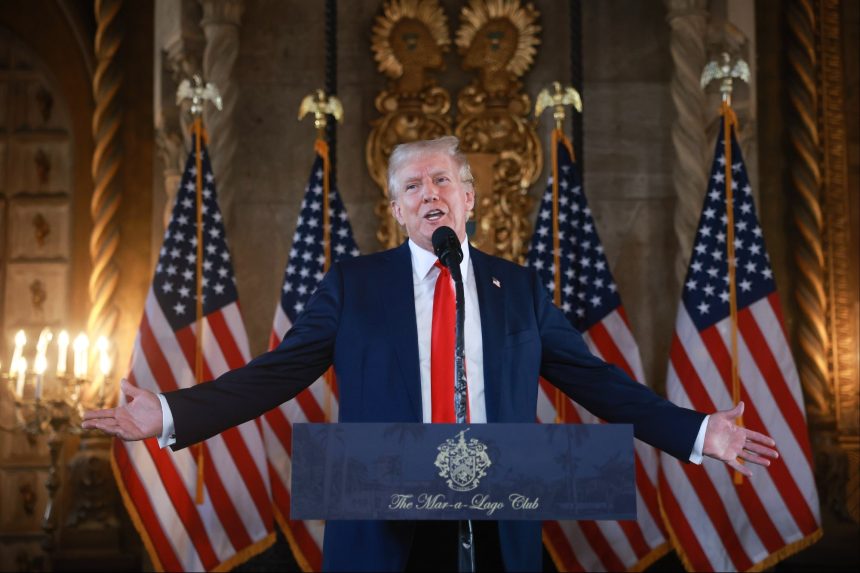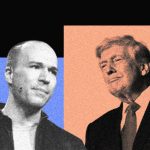In 1951, the Treasury-Fed Accord established the Federal Reserve’s independence, giving the agency the authority to set interest rates without the influence of the executive branch. Now, as the Fed faces calls to cut interest rates to head off a possible recession, Republican presidential candidate and former President Donald Trump wants the President to have more of a voice in interest rate policy.
“I feel that the president should have at least a say” in setting interest rates, Trump said at a Thursday press conference at his Mar-a-Lago resort in Palm Beach, Florida.
The Fed has “gotten it wrong a lot,” Trump added, noting that Fed chair Jerome Powell, who Trump nominated to the post in 2017, “is tending to be a little bit later on things.”
Related: Jamie Dimon Says a Mild Recession Is Still on the Table: ‘There’s a Lot of Uncertainty Out There’
Trump said that setting interest rates was more about instinct, or a gut feeling.
“In my case, I made a lot of money, I was very successful,” Trump said. “I think I have a better instinct than, in many cases, people that would be on the Federal Reserve or the chairman.”
Donald Trump speaks during a press conference at his Mar-a-Lago estate on August 08, 2024. Credit: Joe Raedle/Getty Images
Powell and Trump had a contentious relationship when Trump was in office from 2016 to 2020. Trump publicly called out Powell for not raising rates or lowering them enough at various points throughout his term and repeated criticisms of the Fed’s policies to reporters and in speeches.
Related: JPMorgan CEO Jamie Dimon Offers Policy Advice to Donald Trump, Kamala Harris
Powell’s term ends in 2026, so the next President will pick the next Fed chair. Trump said in February that he wouldn’t reappoint Powell if he wins; in July he said he would allow Powell to serve out his term, and Powell said that he would stay in his post until his term expires.
After Trump’s remarks on Thursday, Jared Bernstein, chair of the White House Council of Economic Advisers, reposted a May analysis of the importance of an independent central bank on X.
“History could not be clearer regarding the lasting & damaging inflationary consequences of ignoring this lesson or reversing the hard-earned progress of the past half century,” Bernstein wrote, quoting the report.
Our @WhiteHouseCEA analysis re the importance of central bank independence:
“History could not be clearer regarding the lasting & damaging inflationary consequences of ignoring this lesson or reversing the hard-earned progress of the past half century.”https://t.co/v5szS6FPAv— Jared Bernstein (@econjared46) August 8, 2024
Read the full article here










